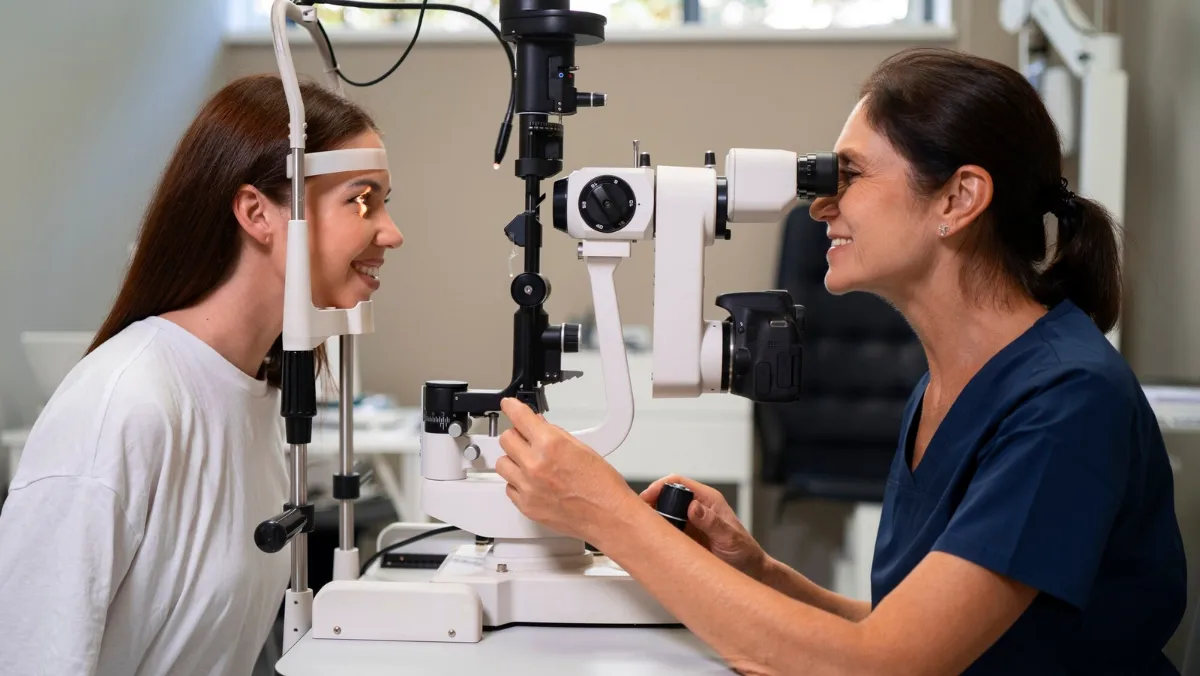
Safety Rate
Safety Rate
Ophthalmology is a specialized branch of medicine focused on the diagnosis, treatment, and management of eye-related conditions. It encompasses everything from routine vision care to complex surgical procedures, playing a vital role in preserving one of our most essential senses—sight. As vision impacts every aspect of daily life, maintaining ocular health is essential not only for quality of life but also for safety and independence. Ophthalmologists are trained to address a wide range of issues, from common refractive errors like nearsightedness to serious disorders such as glaucoma, cataracts, and retinal diseases. With an aging global population and increasing screen exposure, the demand for specialized eye care has grown significantly. Technological innovations continue to elevate the precision and outcomes of eye treatments, making ophthalmology an ever-evolving and critical field in modern medicine.
Ophthalmology is a medical discipline that deals exclusively with the anatomy, physiology, and diseases of the eyes. It encompasses both medical and surgical care, providing solutions for vision problems and managing complex eye disorders. Practitioners in this field undergo extensive training to deliver specialized care tailored to individual patient needs.
From prescribing corrective lenses to performing intricate surgeries like retinal detachment repair, ophthalmology offers comprehensive care for vision preservation. It combines diagnostic precision with therapeutic intervention to manage everything from routine vision issues to rare ocular conditions. With subspecialties such as pediatric ophthalmology, neuro-ophthalmology, and oculoplastics, it stands as one of the most diverse and technologically integrated fields in healthcare.
Ophthalmology includes a wide array of procedures aimed at correcting, improving, or restoring vision. These procedures range from non-invasive therapies to highly specialized microsurgeries, each tailored to treat specific eye conditions.
Cataract surgery is one of the most frequently performed procedures worldwide and has a high success rate in restoring vision. Refractive surgeries, like LASIK, provide long-term freedom from glasses or contact lenses. Retinal procedures require sophisticated equipment and expert handling to ensure delicate tissue preservation. Many of these procedures are performed on an outpatient basis, minimizing recovery time. Innovations such as femtosecond lasers and computer-guided systems have further improved safety and precision, ensuring better patient outcomes with fewer complications.
Ophthalmology hospitals address a vast spectrum of conditions affecting the eyes and vision. From common to rare disorders, specialists use clinical acumen and diagnostic tools to determine appropriate interventions.
Each condition requires a personalized treatment approach. For instance, diabetic retinopathy often demands a multidisciplinary strategy involving endocrinologists and ophthalmologists. Pediatric eye issues like amblyopia need early detection for effective treatment. Glaucoma, often called the "silent thief of sight," requires regular monitoring to prevent irreversible damage. Eye trauma, infections, and congenital abnormalities are also managed through medical or surgical intervention. The goal is always to protect vision and enhance quality of life.
Ophthalmology has witnessed remarkable technological advancements, transforming the way surgeries are performed. These developments ensure greater accuracy, improved safety, and faster recovery for patients undergoing eye procedures.
Robotic systems and precision lasers now guide many surgeries, reducing human error and enhancing visual outcomes. Minimally invasive glaucoma surgeries (MIGS) offer safer options for pressure management without extensive tissue disruption. AI algorithms support early detection of diseases like diabetic retinopathy, enabling timely intervention. Innovations like retinal implants and gene therapy hold promise for restoring vision in patients with previously untreatable conditions. These breakthroughs have redefined patient care, allowing for earlier diagnosis, targeted treatments, and more predictable recovery paths.
Preventing vision loss is one of the primary goals of ophthalmology. Early diagnosis and timely treatment are crucial in avoiding permanent damage. Routine screenings and proactive care are essential, especially for those at higher risk due to age, genetics, or systemic conditions.
Individuals with a family history of eye disease or those experiencing visual changes should prioritize comprehensive eye assessments. Educational campaigns emphasizing awareness and early detection can prevent many cases of irreversible blindness. Lifestyle adjustments such as wearing sunglasses to block UV rays and avoiding smoking also contribute significantly to ocular health. Ophthalmology plays a crucial role not just in treating vision loss but in implementing preventive strategies that safeguard sight throughout life.
Ophthalmology plays a crucial role in preserving and improving vision through a blend of science, technology, and compassionate care. It addresses various eye conditions with advanced surgeries, preventive screenings, and innovative treatments, supporting patients throughout their vision journey. With rising life expectancy and increased digital exposure, managing eye health has become more important than ever. Mahalakshmi Multispeciality Hospital leads this effort, providing cutting-edge facilities and expert specialists dedicated to exceptional eye care. Prioritizing ocular health prevents blindness, enhances independence, and improves quality of life, making ophthalmology vital to modern healthcare and well-being.
Meet our experienced team of anaesthesiologists dedicated to your safety and comfort
Our experienced anaesthesiologists are here to ensure your safety and comfort
Copyright ©2025 Mahalakshmi Multispeciality Hospitals. All Rights Reserved
© Designed and Developed By Cloudstar Digital